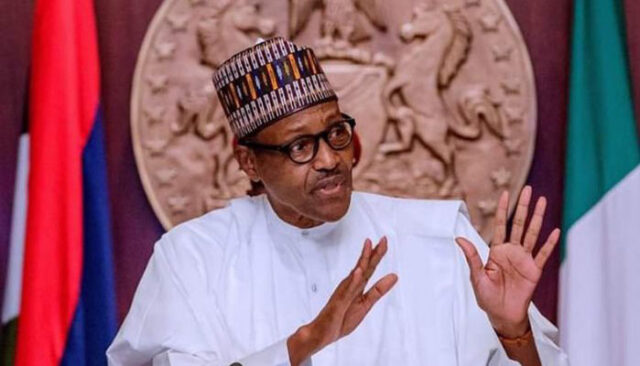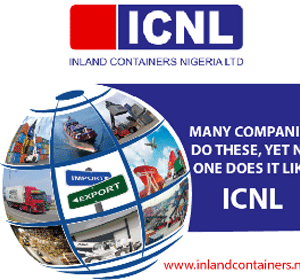The economic problem of Nigeria appears to have gone out hands of the present government in the country. Unable to harness the country’s enormous potentials, especially in maritime and mineral resources, the government sees borrowing as the only option to stay afloat.
The government now borrows like a one that has lost its senses, borrowing recklessly and with impunity.
Nigeria’s external debts currently stands at over N41.60trn. According to the Debt Management Office (DMO), as of March 2022, Nigeria’s total debt portfolio (FG, State and FCT) was N41.6 million. And the International Monetary Fund has warned that Nigeria may spend nearly 100 per cent of its revenue on debt servicing by 2026. Currently over 80 per cent of the budget is being used to service debts.
Amidst the public outcry of mounting debt burden and relentless reckless borrowings, the National Chairman of the ruling party, the All Progressives Congress (APC), Abdullahi Adamu, a few days ago, said Nigeria can borrow from now to eternity. He said other developed nations borrow, so Nigeria should not be an exception. The frightening mountain of debts and the warnings from local and international institutions appear not to make any meaning to the APC Chairman.
Among the many senseless things the ruling party’s chairman said to justify the reckless and corruption-ridden borrowings, Adamu said Nigerians should appreciate the “fact of the level of revenue accruing to the government; oil is the main thing… We want to see how best we can diversify. These issues affecting the revenue accruing to the government are not our making no matter how good we are, they happen.”
By this statement, the APC Chairman is trying to exonerate the government for its inability to manage the oil sector properly for the nation’s economic development. He is justifying the incompetence, corruption and the officially backed oil theft that is bleeding the nation. He is justifying the inability of government to control the numerous and unprecedented leakages in the economy, including public and private organizations doing things the way they deem fit.
As a result of corruption, lack of control and ineptitude, private organizations that should contribute to government revenue by paying their taxes, dues, and royalties refuse to do so, or do so in halves, withholding some. Recently, theHouse of Representatives Public Accounts Committee (PAC) alleged that port operators owe the government $852,093,730.77 and N1,878,560,509.57.
Chairman of the committee, Mr. Wole Oke, who confirmed the development, claimed that of the amount, $753 million and N1,609,150,534.32 have not been paid by the terminal operators. The PAC chairman said the National Assembly would leave no stone unturned in ensuring total recovery of the debts. He said the debtors would be summoned before the committee to ascertain their indebtedness to the Federal Government and work out terms of payment.
He also promised to publicise identities of the debtors in national dailies and get them blacklisted from doing business with the government in future. The committee’s findings was based on a report of the office of the Auditor- General of the Federation, which queried Nigerian Ports Authority (NPA) over the indebtedness of about 18 terminal operators in the country.
According to the query, the amount was part of the debt identified by the Auditor-General as money standing against the terminal operators as at December 31, 2019. The indicted operators are at the Lagos, Tin-Can Island, Delta, Rivers, Onne and Calabar ports.
All this came to light following a report by the Office of the Auditor-General of Federation, on non-compliance/internal control weaknesses in Ministries, Departments and Agencies of the Federal Government for the year ended December 31, 2019.
Just as government is being owed huge amounts of money in local and foreign currencies by terminal operators to whom the government concessioned the nation’s seaports terminals in 2006, it is equally owned heavily by operators in other sectors. All this is as a result of non-compliance and internal control weaknesses as a result corruption, ineptitude, cronyism and political patronage. Had there been control in the system and things done the right way, government would be collecting enough money that will make the economic suicidal external borrowings unnecessary.
Nigeria’s maritime sector, experts have continued to reiterate, is a gold mine. If the sector is properly managed and harnessed, it has the capacity to finance the nation’s budget, and render government borrowings absolutely uncalled-for. Many countries that are less endowed in maritime potentials have been enjoying the sector as their main revenue earner. But in Nigeria, apart from inability to harness the potentials of the sector, there are numerous leakages and deliberate sabotage of the little that is supposed to accrue to government. Both the policy makers and the regulators, and the private operators are all engaged in the business of short changing the government.
Thus, while the government and the people reel under the weight of economic crunch and debts servicing, revenue sources continue to leak into private pockets, as accountability takes flight.








